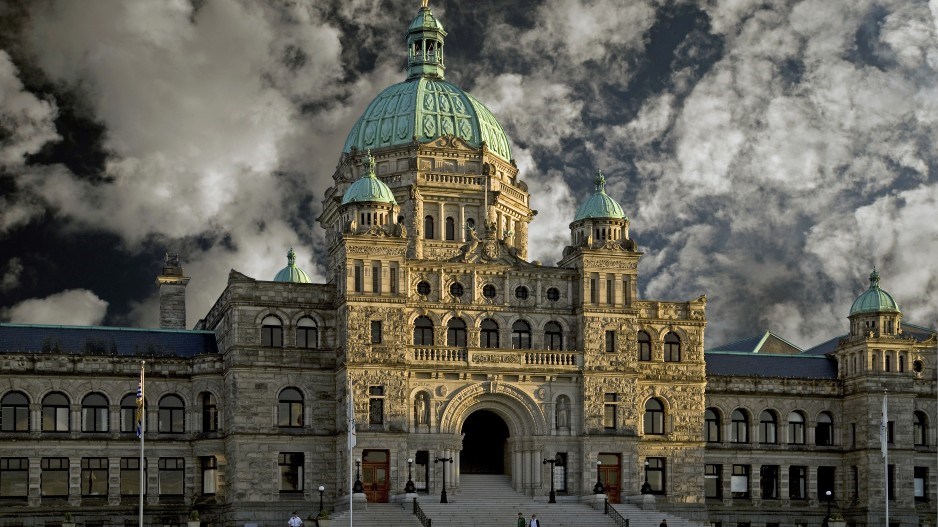Only a few weeks ago, the biggest problem occupying the minds of policymakers in Canada was the climate crisis – that and blockades held in solidarity with Wet’suwet’en First Nation hereditary chiefs opposed to the Coastal GasLink pipeline.
Banning plastics was one of the entrees on federal and municipal menus for 2020.
Those preoccupations don’t seem so pressing now, as governments in triage mode grapple with the more immediate dual crisis of containing a pandemic and trying to prevent the economy from collapsing.
A carbon tax hike that was due to take effect April 1 was one of the first things to go in B.C. The $5 per tonne hike due April 1 has been pushed back to September.
A new urgent care clinic slated to open this month in Abbotsford has been delayed, the Ministry of Health confirmed.
At the request of municipalities, the Ministry of Municipal Affairs and Housing has indefinitely cancelled municipal byelections in Victoria, Rossland and Lytton. It has also cancelled a referendum on the proposed new $70 million arts centre in Kamloops.
The Business Council of British Columbia (BCBC) has asked the provincial government to call a halt to all spending and policies not related to health care and stabilizing the economy.
“Government needs to stand down on everything it’s been doing that isn’t focused on health system resiliency and keeping the economy from basically collapsing,” said BCBC executive vice-president and chief policy officer Jock Finlayson. “We want an across-the-board moratorium on all new fees, all new regulatory measures, all policy consultations.
“There are all kinds of consultation processes underway between the government and various industry sectors,” he said. “Companies are not in a position to engage in that right now because they’re busy trying to stay alive and look after their employees.”
He cites new low-carbon fuel standards, emissions standards and an energy step code as just a sample of policies that will have an impact on business that need to be temporarily halted.
Efforts to expedite the resolution of Wet’suwet’en rights and title – something pursued with a sense of urgency by the province – no longer seem so urgent.
The Office of the Wet’suwet’en has shut down, proposed clan meetings have been postponed and protesters who had been occupying protest camps have been quiet for the last three weeks. The Ministry of Indigenous Relations and Reconciliation confirmed it expects ratification of the rights and title offer to be delayed.
Announcements on various funding initiatives under CleanBC in 2020 are being postponed, according to the Ministry of Environment.
“While there is a significant amount of work ongoing to support CleanBC, the province has temporarily postponed most public announcements at this time while the focus remains on the government’s COVID-19 action plan and protecting public health and safety,” the ministry said.
Regulators like the BC Environmental Assessment Office (BC EAO) and the BC Utilities Commission (BCUC) confirm that workshops, open houses and public hearings on a number of projects going through reviews are being postponed.
The early engagement process for the proposed $3 billion expansion of the Tilbury Island LNG plant, which just entered the BC EAO review process at the beginning of March, is being delayed by 90 days, for example.
A review of BC Hydro’s revenue requirements is just one of many processes being delayed by the BCUC. BC Hydro’s revenues will undoubtedly take a hit, as the provincial government orders the utility to offer a range of payment deferrals to customers facing hardship.
And with the provincial government now facing a dramatic drop in tax revenue and a new $5 billion hole in its budget for emergency programs to cope with the COVID-19 crisis, there are now serious questions about projects that were to move forward this year or next getting put on the back burner.
Surrey Board of Trade CEO Anita Huberman fears projects important to Surrey, like the $3 billion Surrey-Langley SkyTrain project, could fall off the planning calendar.
TransLink was expected to give final approval to the project this summer, with a construction start in 2022. Huberman fears both the provincial and federal governments will be too cash-strapped to proceed with those types of big-ticket projects.
“Decisions related to that could be delayed,” she said. •




